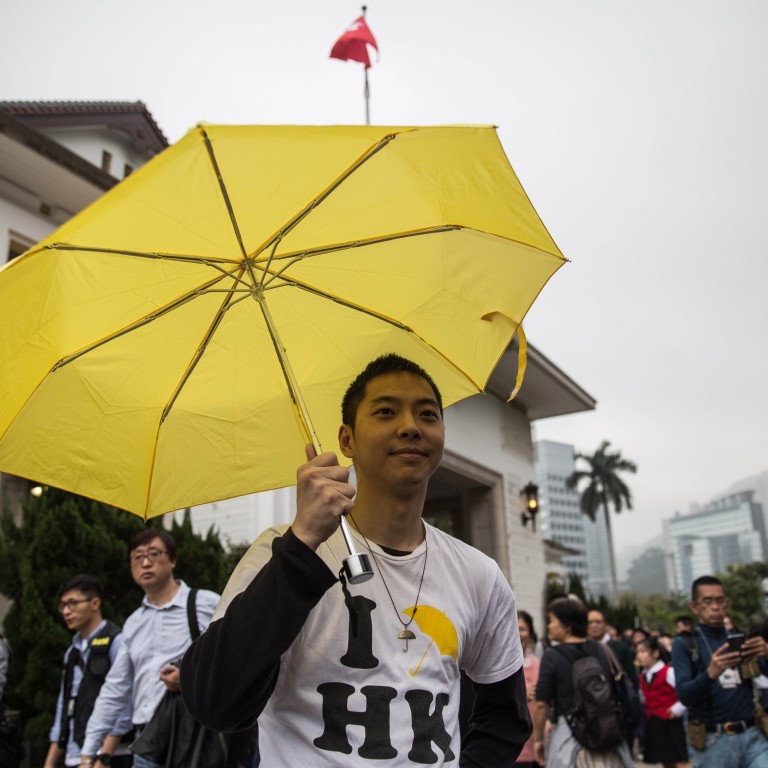
Failure to reform Hong Kong's political system will hurt its global standing
Anson Chan calls on the SAR and central governments to consider carefully the potential fallout
On top of his knee-jerk dismissal of a proposal to put the government's final constitutional reform package to the test of public opinion, Secretary for Justice Rimsky Yuen Kwok-keung has added insult to injury by characterising pan-democrat legislators' vow to veto the government's political reform proposals as a "negative political gesture". This is rich coming from a member of the Task Force on Constitutional Development that has consistently poured cold water - either directly or via various pro-establishment mouthpieces - on every suggestion put forward to try and resolve the current political stalemate.
In company with other pro-democracy advocates, my Hong Kong 2020 think tank has gone the extra mile. We have participated in the government's consultation process with diligence and sincerity, despite the fact that it has been shamefully manipulated at every stage. We have requested meetings with the task force's members, to explain our ideas in detail; our requests have been turned down or quietly ignored.
Now, instead of responding positively to constructive proposals emerging from the consultation process, the government seems bent on bullying Hong Kong people into acceptance of a package that not even pro-Beijing diehards dare claim meets public expectations.
The aspirations of Hong Kong people for a credible system of electing the chief executive by universal suffrage in 2017 have suffered death by a thousand cuts.
We were promised that the second stage consultation would offer potential for reforms to the composition and method of election of the future nominating committee. Instead, the tone and content of the consultation document made clear that the government has neither the will nor the imagination to respond to basic demands to abolish corporate (company) voting in the nominating committee subsectors and broaden its overall franchise. Without such changes, the nominating committee can neither claim to be "broadly representative" of the community, nor accountable to it.
The proposals we have unveiled for election of the chief executive in 2017 are designed to ensure that, while conforming to the requirements of the August 31 decision by the Standing Committee of the National People's Congress, the nominating committee fulfills its responsibility to offer the electorate genuine choice and nominate candidates who can obtain sufficient votes to have political legitimacy.
Under the plan we propose, any person who obtains nominations from at least one-tenth of the total number of nominating committee members (120 nominations) would be eligible to enter the race for election to the post of chief executive and have their names included on the ballot paper. Voters would have the option to select the candidate of their choice.
However, only the two to three candidates formally nominated (by at least 50 per cent of nominating committee members) would be eligible for outright election in the first round, provided he or she secured a minimum of 50 per cent of all votes cast by the general electorate.
If no formally nominated candidate secured 50 per cent, the election would go to a second round, to be contested between the two candidates on the ballot paper who had secured the most votes. If one or both of the top two candidates were not initially nominated by the nominating committee, the committee would proceed to nominate them and the run-off vote would proceed with just two names on the ballot paper.
The rationale behind our proposals is simple: to ensure that the elected chief executive has a clear majority of the popular vote and thus secures a genuine mandate to govern. In contrast, the proposals we are being asked to pocket could give a chief executive, elected with only minority support, carte blanche to bring in whatever potentially draconian policies he or she wishes, all the while claiming to be democratically elected. Such a leader would be far more dangerous and divisive than those chosen under the current method, which at least cannot masquerade as universal suffrage.
It is a dangerous illusion to believe that, by waving through the current proposals for 2017, we can hope for better next time around. Past experience suggests such confidence would be totally misplaced. As a community, we must unite to make clear that, after waiting so long, a sham form of universal suffrage will not do.
Unless substantive improvements are made to what is currently on offer, pan-democrat lawmakers will hold to their principled position and veto the government's proposals in the Legislative Council. The Hong Kong and central governments must listen to the voices of ordinary Hong Kong people and weigh very carefully the implications of such abject failure, both for Hong Kong's international standing and the good governance and stability of the city.

